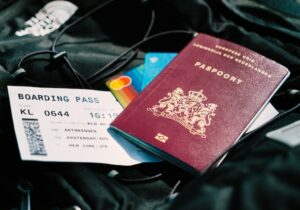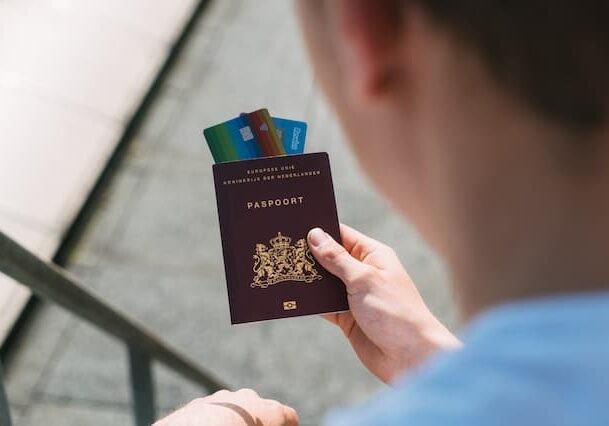In an increasingly globalized world, having multiple passports or dual citizenship can open up many opportunities, including more travel freedom, entry into new business environments, a better quality of life and, access to top quality healthcare and educational institutions for you and your immediate family.
In this guide, we’ll explore the most common pathways to obtaining multiple passports, the advantages and disadvantages as well as what to consider when choosing the countries you want passports for.
Whether you’re looking for greater mobility, financial security, or a fresh start in a new country, this article can help you get started on your journey.
3 Ways You Can Get Multiple Passports
The Global Intelligence Unit’s report on “The Transformation of Citizenship” has shown dual and multiple citizenship is growing in popularity, especially in regions with strong economic or political networks such as the European Union (EU).
Foreign nationals can obtain dual citizenship and a second passport in a different country in several ways. Each approach comes with its own set of eligibility requirements, including but not limited to place of birth, familial ties, residency obligations, and financial investments.
Here are three of the most common ways individuals can become multiple passport holders:
1. Multiple passports by birthright

Countries with birthright citizenship often grant citizenship to a person born in the country regardless of their parent’s legal status.
However, some countries have restrictions, such as requiring at least one parent to be a citizen or have a lawful resident status at the time of the birth.
Familial ties can also serve as a basis for birthright citizenship. In many countries, children are assigned the nationality of their parents (jus sanguinis).
Some countries, like Italy, may grant citizenship to those with supporting documents proving they have ancestors in their direct lineage who were citizens of the country. Spanish citizenship by descent works on the same principle as Italy.
2. Multiple passports by naturalization
Another scenario for obtaining a second passport is through naturalization. Naturalization is a legal process whereby a person can become a citizen through meeting specific requirements and applying for citizenship.
Getting citizenship by naturalization and an accompanying passport can include some of the following requirements:
- Meeting the minimum legal residency period in the country. The length of this is usually determined by the type of permit held, such as a marriage or family visa, a work visa, or a student visa.
- Passing citizenship character tests, like general knowledge of the country and the ability to speak the national language.
Check out our guide to the 17 best countries to get a second passport in to help you decide where you want to apply.
3. Multiple passports by investment

Real estate investment, purchasing government bonds, and charitable donations are typical investment options available through CBI programs.
The criteria entails meeting a minimum investment amount, being over the age of 18, passing a due diligence test and, in some cases, a minimum residency period.
Here are some of the best citizenship by investment programs that will lead you to a second passport in just a few months:
Country | Minimum Investment | Residency Requirement | Time to Citizenship |
Portugal | €250,000 | 7 days/year for 5 years | 5 years (can apply for citizenship) |
Greece | €250,000 | None (but must maintain investment) | 7 years (can apply for citizenship) |
Spain | €500,000 | 10 days/year for 2 years | 10 years (can apply for citizenship |
Malta | €600,000 | None (but must maintain investment) | 12 to 36 months |
St. Kitts and Nevis | $250,000 | None (but must maintain investment) | 12 months |
Antigua and Barbuda | $230,000 | 5 days | 4-5 months |
Dominica | $200,000 | None (but must maintain investment) | 6-9 months |
Vanuatu | $130,000 | None (but must maintain investment) | 60 days |
Grenada | $235,000 | None (but must maintain investment) | 9 months |
Saint Lucia | $240,000 | None (but must maintain investment) | 10-12 months |
Pros and Cons of Having Multiple Passports
Being a multiple passport holder brings with it both advantages and disadvantages. Here are some to consider:
Pros
- Enhanced Travel Opportunities: Multiple passports grant you visa-free or visa-on-arrival access to many countries that might otherwise require lengthy and complicated visa application processes and bureaucracy.
- Access to Healthcare and Education: With multiple passports you can make use of healthcare and education facilities in any of the countries you have citizenship in. This is particularly beneficial if you come from a country with high costs when it comes to medical care and education.
- Political Rights and Opportunities: You can participate in the political processes of any country you have a passport for, meaning you can vote in local elections or work in governmental positions.
- Expanded Property Ownership Rights: In some countries, property ownership is restricted to only citizens. Holding multiple passports allows individuals to become citizens and thus purchase property in previously inaccessible locations.
- Familial Benefits: Passing on citizenship to your children can provide them with the same advantages you have, such as global mobility and access to high-quality institutions.
Cons
- Potential Double Taxation: Being a citizen of multiple countries might to double taxation, depending on the country. This will happen if each country you’re a citizen of claims the right to tax the same foreign income or capital.
- Complex Legal Situations: Navigating the laws and regulations of multiple different countries can be complex, potentially leading to confusion or legal issues.
- Conflict of Interest or Obligations: Each country has different expectations and obligations of its citizens, such as military service. If your actions in one country is seen as problematic in another country, it can lead to conflicts and even revocation of citizenship if the action is considered severe enough.
- Increased Administrative Burden: Obtaining and maintaining multiple passports can be costly and time-consuming, requiring individuals to keep track of multiple sets of documents and procedures.
Choosing a Country for Citizenship: Global Passport Index

The Global Passport Index provides insights into each passport’s power and global mobility including:
- Visa-free travel privileges to different countries,
- Education and healthcare quality
- Cost of living and happiness (measured by the Quality of Life Index)
The strength of a passport is also measured by how easy it is for citizens to conduct business and the variety of market opportunities available. This enables you to choose a passport that aligns with your travel, business, and lifestyle needs.
Other factors to consider include job opportunities in your area of expertise, how easy the immigration process is, whether locals are welcoming to foreigners, safety and crime statistics, the weather and overall climate year-round, how well the culture suits your lifestyle and goals, and, if you have children, whether it’s a family-friendly community.
How Can Global Citizen Solutions Help You?
Global Citizen Solutions is a boutique migration consultancy firm with years of experience delivering bespoke residence and citizenship by investment solutions for international families. With offices worldwide and an experienced, hands-on team, we have helped hundreds of clients worldwide acquire citizenship, residence visas, or homes while diversifying their portfolios with robust investments.
We guide you from start to finish, taking you beyond your citizenship or residency by investment application.

Frequently Asked Questions about How to Obtain Multiple Passports
How many passports can one person have?
A person can technically hold as many passports as they want as long as all the countries involved allow for dual or multiple citizenship.
What are the benefits of having multiple passports?
Some benefits of holding multiple passports include:
- Easier global travel through visa-free access.
- Access to international markets which expands business opportunities.
- The ability to own property in numerous countries.
- Access to social benefits, better higher education and healthcare for you and your family.
- Safety net in times of political or economic turmoil.
Can you own four passports?
Yes, you can own four passports if you hold citizenship in four different countries that allow multiple citizenships.
Is it illegal to have two US passports?
The United States allows its citizens to hold multiple valid passports under certain circumstances.
What are the risks of holding multiple passports?
The cons of multiple citizenship can include:
- Potential double taxation
- Obligatory military service
- Ineligibility for certain jobs
- Issues with banking due to identity discrepancies
- Dual citizenship restrictions
Can a British citizen have two passports?
Yes, British citizens can hold two passports as the United Kingdom allows for dual citizenship.
How do you get multiple passports legally?
You must become a citizen of multiple countries to obtain multiple passports. You can do this via:
- Citizenship by naturalization
- Citizenship by marriage
- Citizenship by descent
- Citizenship by investment
- Citizenship by birth
Is buying a passport through investment legal?
Yes, but you do not buy a passport per se but you can invest a minimum amount in a country’s economy in exchange for citizenship and an accompanying passport.
How much does it cost to buy a passport through investment programs?
The cost to obtain a passport through an investment program ranges from $130,000 to over $1 million, depending on the country and the type of investment required.
Additional fees for processing and due diligence may also apply.
Which countries do not allow dual or multiple citizenship?
The following countries generally do not allow dual or multiple citizenship:
- Andorra
- Azerbaijan
- Bahamas
- Bahrain
- Belarus
- Bhutan
- Botswana
- China
- Kuwait
- Laos
- Malaysia
- Myanmar
- Nepal
- Oman
- Singapore
- Japan

 Artur Saraiva
Artur Saraiva 
